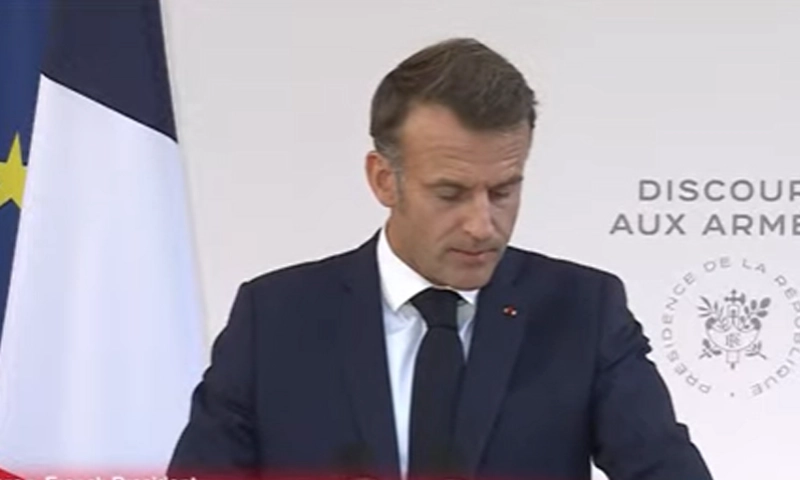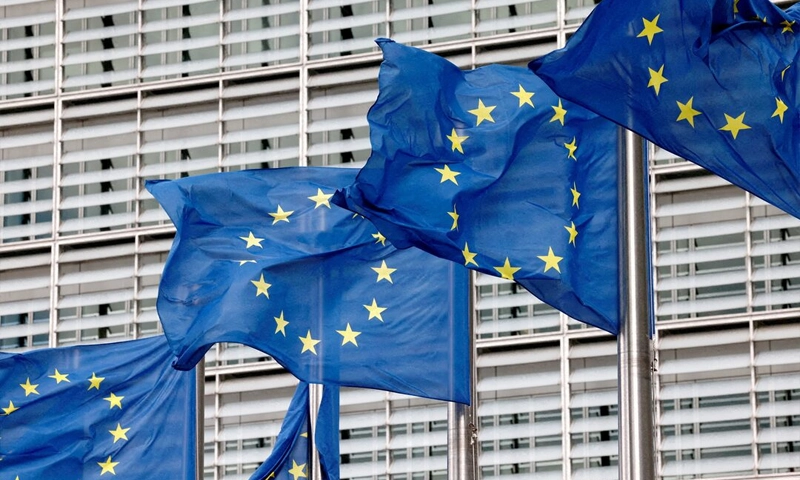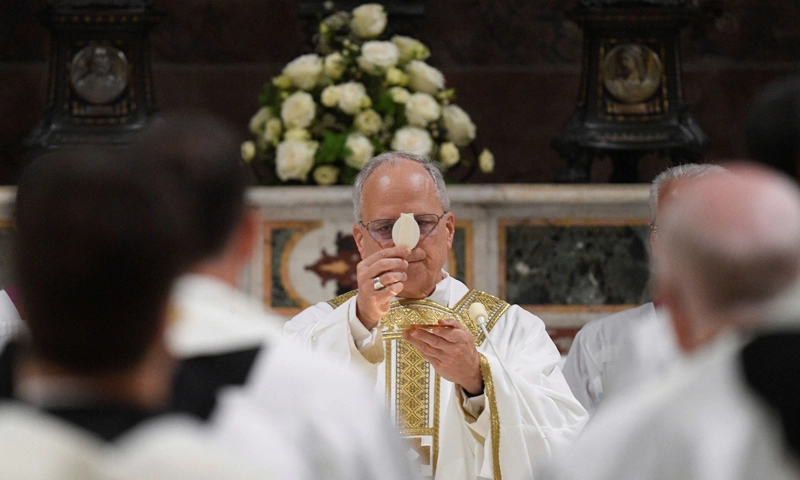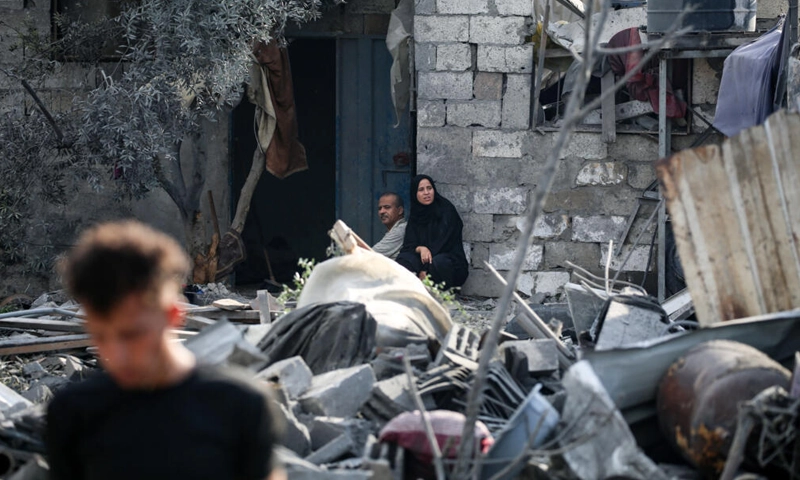
Clashes in predominantly Druze Syrian city kill 18
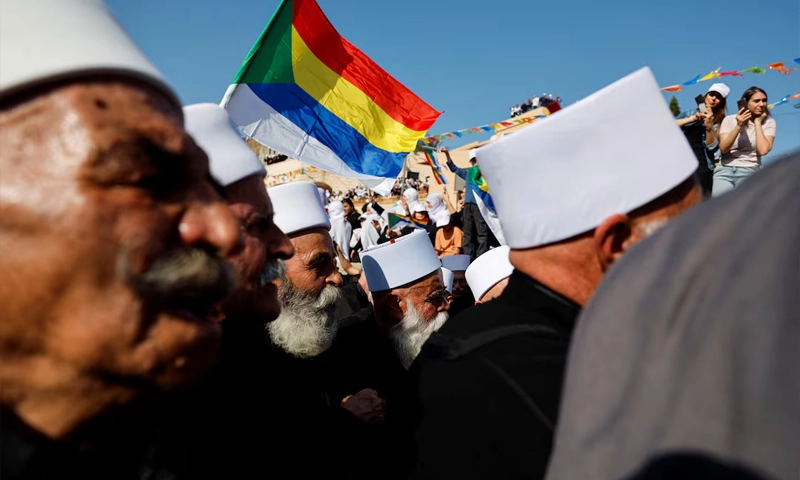
DAMASCUS: Clashes between Bedouin tribes and local fighters in the predominantly Druze city of Sweida in southern Syria killed 18 people, a war monitor said Sunday, as authorities sent forces to de-escalate the situation.
The clashes are the first outbreak of deadly violence in the area since fighting between members of the Druze community and the security forces killed dozens of people in April and May.
Read more: How Syrian govt forces and factions are linked to mass killings of Alawites
The Syrian Observatory for Human Rights said at least eight people had been killed, six of them Druze and two of them Bedouin.
Citing medical sources, local outlet Sweida 24 gave a preliminary toll of seven people killed, “including a child, and about 32 others wounded as a result of armed clashes and mutual shelling in the Maqus neighbourhood”, east of Sweida city.
The outlet also reported the closure of the Damascus-Sweida highway due to the violence.
A Syrian government source, who asked to remain anonymous as they were not allowed to brief the media, told AFP that authorities were sending forces to de-escalate the situation.
Sweida Governor Mustapha al-Bakur called on his constituents to “exercise self-restraint and respond to national calls for reform”.
LONGSTANDING FEUD
Syria’s Druze population numbers around 700,000, with Sweida home to the sect’s largest community.
Bedouin and Druze factions have a longstanding feud in Sweida, with violence occasionally erupting between the two.
Since the overthrow of long-time Syrian ruler Bashar al-Assad, concerns have been raised over the rights and safety of minorities under the new Islamist authorities, who have also struggled to re-establish security more broadly.
Clashes between the new security forces and Druze fighters in April and May killed dozens of people, with local leaders and religious figures signing agreements to contain the escalation and better integrate Druze fighters into the new government.
SYRIA MEETS ISRAEL
Earlier on Saturday a diplomatic source in Damascus said Syrian and an Israeli official met face to face in Baku on the sidelines of a visit to Azerbaijan by President Ahmed Al-Sharaa.
The meeting marked a major step for the two countries which have been foes for decades, and comes after Israel initially cold-shouldered Al-Sharaa’s administration as jihadist because of his past links to Al-Qaeda.
“A meeting took place between a Syrian official and an Israeli official on the sidelines of Al-Sharaa’s visit to Baku,” the source said, requesting anonymity because of the sensitivity of the issue.
Israel is a major arms supplier to Azerbaijan and has a significant diplomatic presence in the Caucasus nation which neighbours its arch foe Iran.
Al-Sharaa himself did not take part in the meeting, which focused on “the recent Israeli military presence in Syria,” the source added.
After the overthrow of longtime ruler Bashar al-Assad in December, Israel carried out hundreds of air strikes in Syria to prevent key military assets falling into the hands of the Islamist-led interim administration headed by Al-Sharaa.
It also sent troops into the UN-patrolled buffer zone that used to separate the opposing forces in the strategic Golan Heights, from which it has conducted forays deeper into southern Syria.
Al-Sharaa has said repeatedly that Syria does not seek conflict with its neighbours, and has instead asked the international community to put pressure on Israel to halt its attacks.
His government recently confirmed that it had held indirect contacts with Israel seeking a return to the 1974 disengagement agreement which created the buffer zone.
NORMALIZE RELATIONS
Late last month, Foreign Minister Gideon Saar said Israel was interested in striking a peace and normalization agreement with Syria.
A Syria government source quoted by state media responded that such talk was “premature.”
But during a visit to Lebanon this week, US special envoy to Syria Tom Barrack said: “The dialogue has started between Syria and Israel.”
After meeting Al-Sharaa in Riyadh in May, US President Donald Trump told reporters he had expressed hope that Syria would join other Arab states which normalized their relations with Israel.
Read more: US revokes foreign terrorist designation for Syria’s HTS
“(Al-Sharaa) said yes. But they have a lot of work to do,” Trump said.
During his visit to Baku, Al-Sharaa held talks with his counterpart Ilham Aliyev, the two governments said.
Azerbaijan announced it would begin exporting gas to Syria via Turkiye, a key ally of both governments, a statement from the Azerbaijani presidency said.



